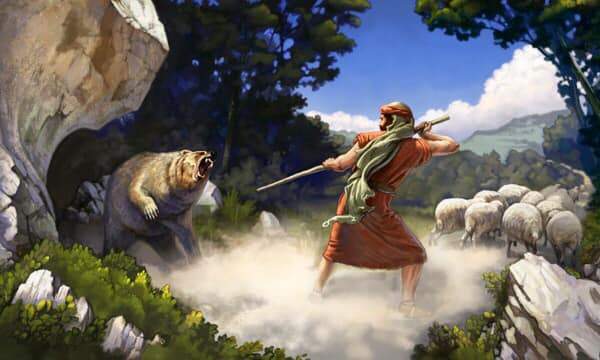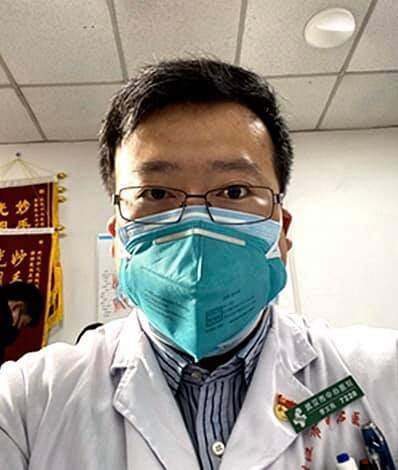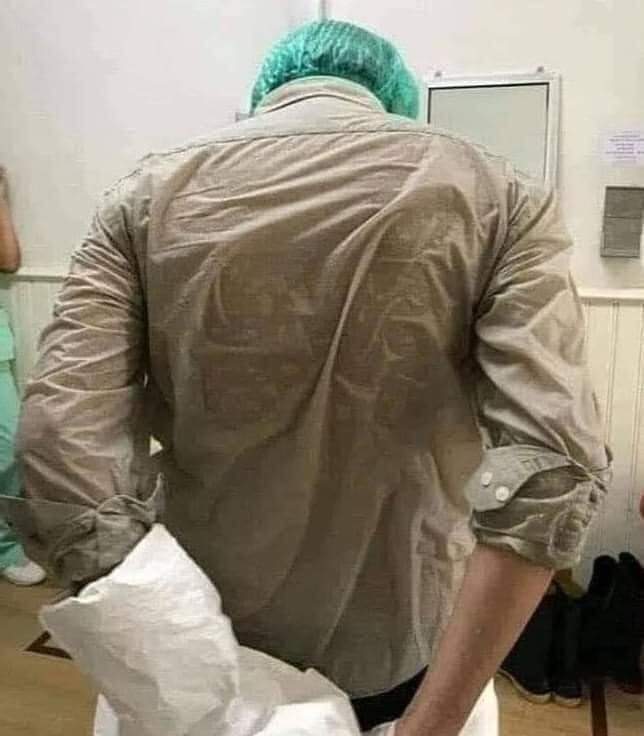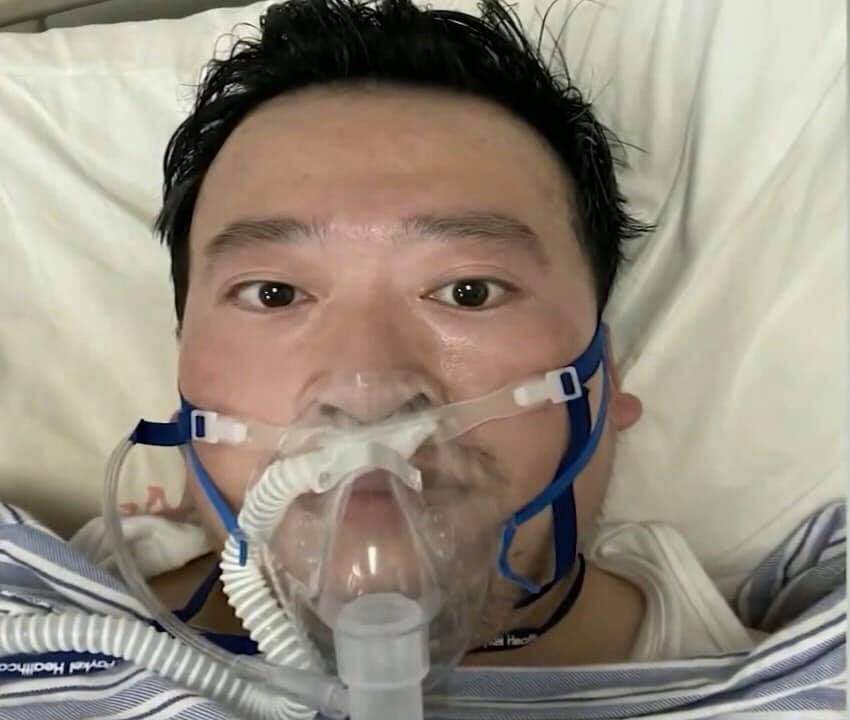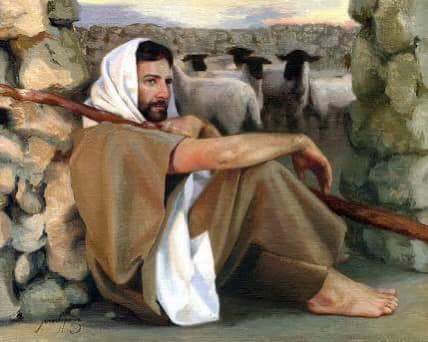BORDERLESS
May 2, 2020THE WOLF AND THE LAMB
May 4, 2020
Homily for Good Shepherd Sunday (Fourth Sunday of Easter)
3 May 2020, John 10:1-10
Dear friends, today the Church celebrates Good Shepherd Sunday. In the context of the present crisis that we are going through, I must say that I have been learning much about “Good Shepherding” from many doctors and nurses who are in the front lines in the global battle against this Covid pandemic.
For the past few months now since this global crisis began, many doctors and nurses have been candidly documenting and sharing what they have been learning about the new corona virus. But among all of them, I think it is from those of them who have been infected and who have suffered the disease themselves and have either been cured or have died in the process that we can learn very much about today’s lesson on “Good Shepherding.”
Before I proceed, let me just note that I am aware that the analogy or metaphor of shepherding for leadership has its own limits. In fact, I know some people who have strong reactions to it. They see in it a kind of leadership that is patronizing. They think the analogy equates the constituents with the flock who do nothing than follow the Shepherd. That is why we have the negative idea of the “herd mentality”.
I agree with this observation only partly. I think it is precisely in reaction to bad models of shepherding that Christianity came up with the Good Shepherd idea, with Jesus as the new model. In fact, already in the Old Testament, you can find many reactions to bad models of shepherding. Saul, like David, was a a shepherd. But when they translate their shepherding into political leadership, Saul’s example is rejected by God while David’s gains God’s approval, even if he fails in the task several times.
There is one whole chapter in the book of the prophet Ezekiel, chapter 34, which criticizes the kind of shepherding done by the ones he calls the false leaders of Israel. Meaning, the kind of shepherds who do not know their sheep and whose sheep do not know them, the kind who run away from danger and who always put self-interest above the welfare of their flock.
If we speak about GOOD SHEPHERDING, before we think of Jesus as the Good Shepherd, please do not forget that the idea is not original to Christianity; it is there already in Judaism. I am referring of course to one of the most famous Psalms in the OT: Psalm 23, “The Lord is my Shepherd, there is nothing I shall want.” The Psalmist is speaking from the perspective of the flock, meaning, the Israelite people in relation to Yahweh their God. He says, “Only goodness and kindness will follow me all the days of my life.” Meaning, the GOOD SHEPHERD is God. After all, even in English, “good” and “God” sound so close to each other, don’t they?
Do you remember that one occasion in the Gospel when Jesus was addressed by a man as GOOD TEACHER, and Jesus reacted and said, “Why do you call me good? No one is good but God alone.” Let us apply the word now to the Shepherd. When is the Shepherd a good one?
Good Shepherding—as far as Christianity is concerned, this is what Jesus illustrates in his way of Shepherding. The metaphor is very fluid. He is also the gate. He will make sure the sheep are safe from danger. He won’t compromise their safety and wellbeing. The image of a shepherd lying down right at the entrance of the cave where he keeps his flock at night almost literally conjures the English expression “over my dead body”. He is ready to face danger; he doesn’t run away. Literally, he puts his life on the line while taking care of his flock.
Our second reading today adds an extremely important aspect of Good Shepherding: the idea that shepherd must know first-hand what the weakest among his flock go through by sharing in their weakness and vulnerability. He does care for the whole flock, but in particular, he prioritizes the weakest among them—the little ones, the pregnant ones, the elderly, the sick, the ones who stray. Remember Jesus saying, he is ready to leave behind the 99 in search of the one that is lost?
The Bad Shepherd has no idea what his sheep are really going through because he is far away from them. He wouldn’t lie down like the gate by the entrance of the cave because he is afraid of the wolves. He will leave that to the hirelings who run away when danger comes. The Bad Shepherd is the one who treats the sheep like a nameless, faceless herd. He’d say “Shape up or die. Too bad for the weaklings, survive if you can. I do not care. All you have to do is follow me. If you can’t you may drop dead for all I care. You just have to do as I say.”
Sometimes, the Lord teaches us Good shepherding the hard way. How? By allowing us to suffer the fate of those we look after. Our second reading from 1 Peter says, “when that happens, treat it as a grace from God. For to this you have been called, because Christ also suffered for you, leaving you an example that you should follow in his footsteps.” Perhaps we can call it mentoring.
Let me share the thoughts of a nurse who has been in this kind of a situation. He texted me a few days ago, asking how I was doing, if I was okay. I said, “Yes, I am doing fine, so far; what about you and your family? I hope you are okay yourselves.” He texted back after a few minutes and said,
“Bishop, I need to tell you… I tested positive for covid just a few days ago. For the past few weeks now, I have been doing frontliner work as a nurse in our hospital, doing swabbing for testing every day on our symptomatic patients.”
“Somehow I knew that in time, I could get infected too. But I did not expect it to come this soon, and worse than I ever thought. Please pray for me, bishop. I did my job as a nurse, even if I was afraid. Maybe it was a strong sense of duty that gave me the courage to just keep doing what I had to do, to help those who have been infected, to recover.”
“But last night, I felt like I was caving in; I found myself crying to God and saying, ‘Lord, what did I do to deserve this? I set aside my own family, my own comfort, in order to serve the people who need me. And now, this… Why? I don’t understand. Do I really need to go through this myself?’ I must admit that I feel defeated by my emotions, Bishop; like something is eating me up inside. Please pray that the Lord will guide me.”
“I had no symptoms when I tested positive a few days ago. But since this afternoon I have been having a shortness of breath. I started to worry so I called my doctor. He did not want me to be admitted in the hospital.”
“Maybe because I am a nurse, they think I can take care of myself at home anyway. They gave me two kinds of medication for pneumonia and instructed me to mitigate my shortness of breath by using a nebulizer. I am under isolation now, under strict quarantine, so I am home alone. The other members of my family had to move elsewhere. Only my mother is allowed to come to deliver my food at my doorstep everyday.”
“Please, bishop, pray for me. Thank you for listening to me.”
I did not say very much. Basically, I said, “I hear you, I am here for you. Please keep me updated and do not hesitate to text me or call me whenever you feel the need to.”
You see, many doctors and nurses are clueless about this horrible disease. That is the reason why they are asking us to stay home. They are overwhelmed and they find it difficult to cope. The disease is new, there is no medicine for it, it defies everything that they know about patient’s care. They are clueless, until they actually suffer it themselves. From doctors and nurses, they become the patients. From shepherds they become the lambs. They go through all the humiliation and helplessness that the typical patients must undego in the ICU. But when they get healed, their attitude changes radically. Why? Because they have been through it.
In the letter to the Hebrews (4:15), the image is not that of a Shepherd but a Priest. The writer says, “ For we do not have a high priest who is unable to sympathize with our weaknesses, but one who in every respect has been tempted as we are, yet without sin.”
The very first doctor who died of Covid19 was apparently a Chinese Catholic. His name was Dr. Li Wen Liang. He was the doctor who treated the very first patients infected by the novel coronavirus in Wuhan and called the attention of the Chinese government about it. Back in December last year, he was arrested for being a whistle- blower, for allegedly ‘spreading rumors’ about a mysterious pneumonia-like virus. There is a poem supposedly written by him that went viral in the social media in February. Let me quote a portion of what he wrote,
“I really don’t want to be a hero. I also have my parents to think of,
And my children,
And my pregnant wife who’s about to give birth, and many of my patients in the ward.
Despite my loss and confusion, I should proceed anyway.
When this battle is over, I will look up to the sky,
With tears like rain.”
“I really don’t aspire to become a hero. I am just a simple doctor, but I will not allow this unknown virus to continue hurting my peers, and so many innocent people.
While they are dying,
They look at me in their eyes, with their hope of life.”
Farewell, my dear ones.
Hopefully, after the disaster,
You’ll remember someone once
Tried to let you know the truth as soon as possible.
Hopefully, after the disaster,
You’ll learn what it means to be righteous. No more good people
Should suffer from endless fear,
And helpless sadness.”
Dear friends, it is from reluctant heroes like him, and the nurse I told you about, that we have much to learn today about Good Shepherding.
